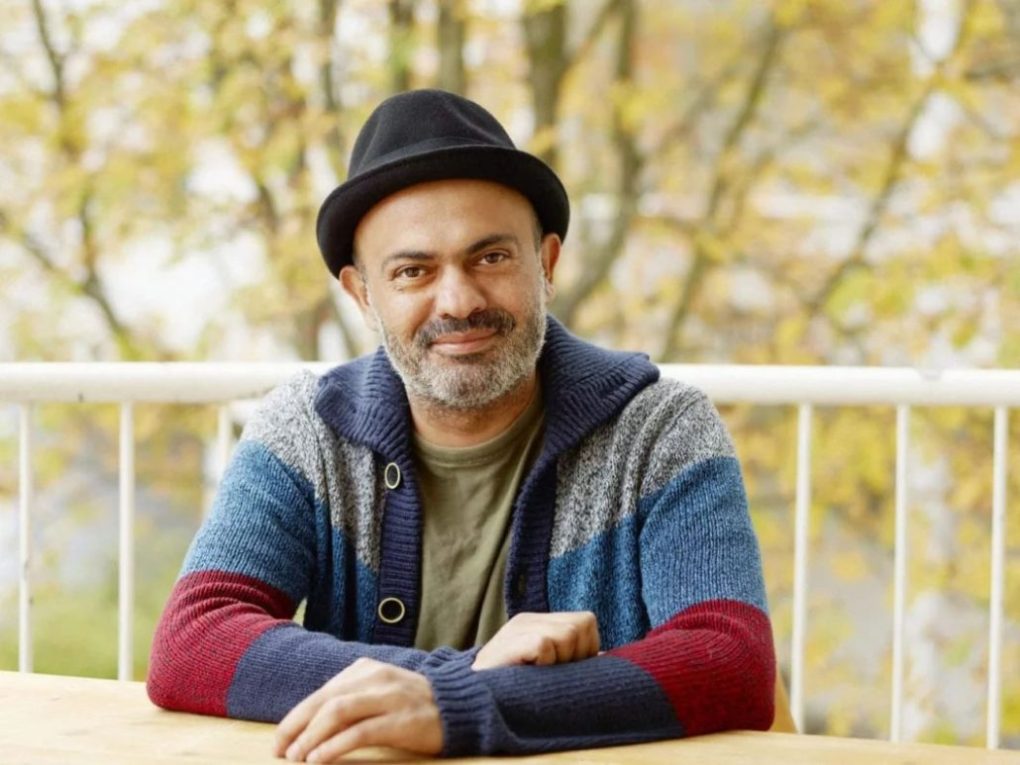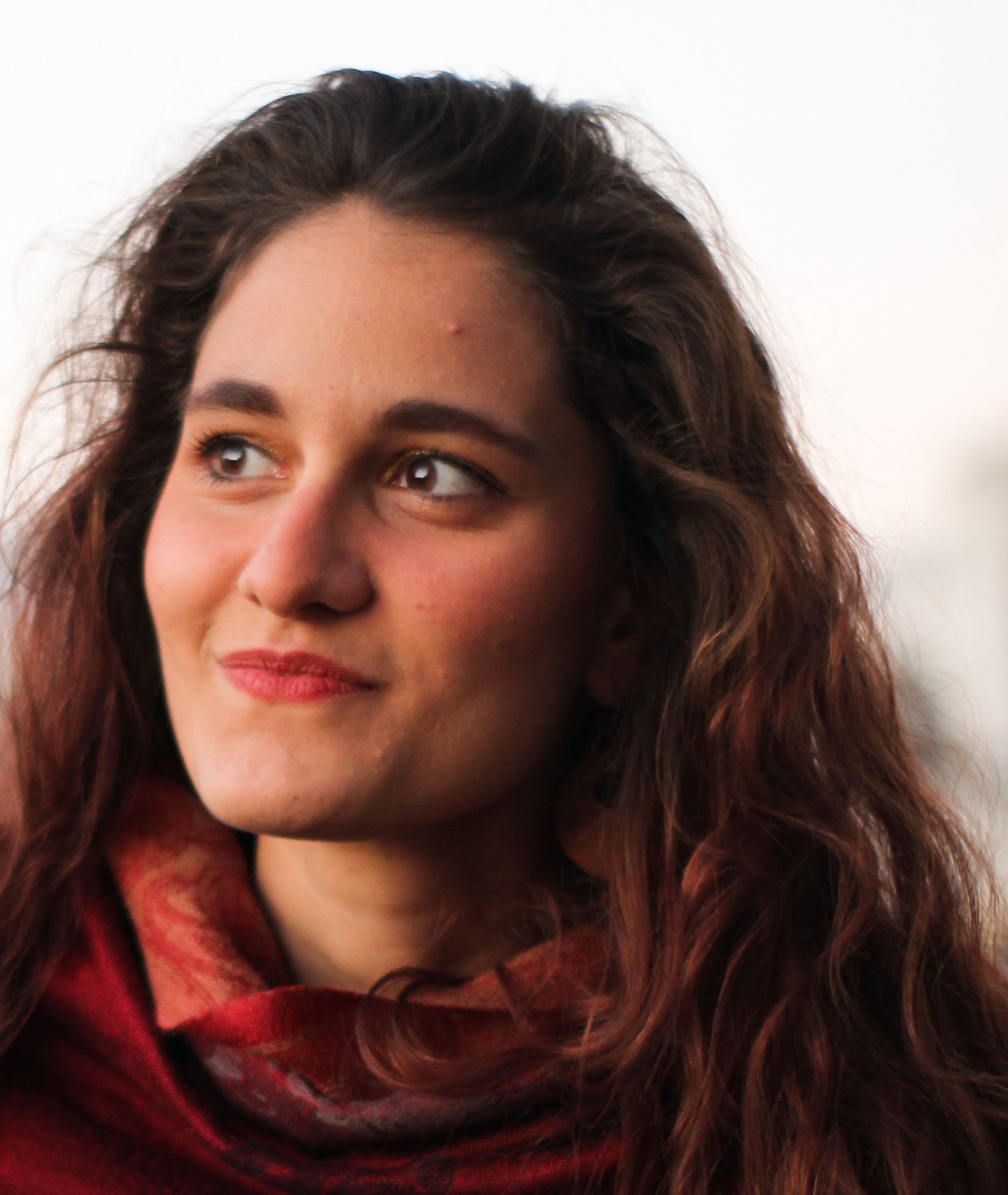Through exiles who carry mothers’ bones and repressed selves that return in dreams, his fiction dismantles the myth of cultural purity. This interview explores how literature can forge belonging beyond nationalism, in a world where movement is both freedom and fracture.

In a Europe increasingly dominated by right-wing nationalist narratives – obsessed with “migration invasions,” repatriations, and framing human beings as economic problems – we seem to have stopped asking more complex questions. Questions about Europe’s role in global inequality, the violence of borders, the right to movement, and what transcultural identity means in a fast-changing, transnational world.
This is what I asked Hassan Blasim[1] – Iraqi author – after reading his short story collection: “How do we define identity when all our certainties collapse? What remains of us when everything is taken away?” His work forces us to confront these fractures – not as distant politics, but as lived realities shaping our generation’s future. The interview has been translated from Arabic into English for the sake of the readers.
The Nightmares of Carlos Fuentes: when a suppressed identity fights back
In Hassan Blasim’s The Madman of Freedom Square, the story The Nightmares of Carlos Fuentes follows Salim Abdel Hussein, an Iraqi trauma cleaner who flees to the Netherlands and reinvents himself as “Carlos Fuentes” to escape anti-Arab prejudice. He aggressively assimilates – marrying a Dutch woman, mocking immigrants, and burying his past – until violent nightmares shatter his fragile new identity. They force him to confront his Iraqi alter-ego Selim, and their climactic dream-battle ends with Selim leaping unscathed from a window – moments before Carlos plunges to his real death. The final insult? Obituaries label him an “Iraqi death”, erasing his Dutch persona. The Baghdad ring still on his finger proves the past he denied ultimately claimed him.
Hassan Blasim’s writing thus makes tangible the liminality that remains obscure in real, frenetic daily life. That space where life’s paradoxes and traumas – sometimes manifesting as dreams – can be transformed into constructive dialogue. It is indeed possible to live between two worlds, finding peace in a hybrid identity, when the bond between past and present is not a static legacy suspended in time but a living one.
A vibrant relationship with the past can transform cultural heritage into agency – but Selim flees his Iraqi identity, viewing it only as a source of shame. He buries his trauma: for him, identity becomes more of a burden than a cultural legacy, an obstacle to the protagonists’ happiness and fulfilment.
What we carry: home in a suitcase as an antidote to Nationalism
The Ali’s bag story unfolds in an Italian migrant centre, where tensions flare between residents of different nationalities. Ali, a young Iraqi determined to reach Northern Europe, guards a mysterious black suitcase containing his few worldly possessions – and his mother’s bones.
As revealed by his Iraqi roommate (the narrator), Ali secretly exhumed his abused mother’s remains, fleeing Iraq to bury her far from the family that tormented them both. During a nighttime border crossing between Turkey and Greece, Ali drops the suitcase while evading guards. He recovers all the bones – except her skull. Though Ali finally reaches Europe, his victory is bittersweet. Relief at survival wars with crushing guilt over that lost skull – a haunting symbol of incomplete redemption.
In the interview, I asked the author whether Ali was based on a real person or entirely fictional. Here’s Blasim’s response:
“I wrote it while staying in a Hungarian refugee camp – half the stories in The Madman of Freedom Square were composed there. The camp housed two Alis who were friends: one, an older sailor from Basra, the other a teenage boy who’d walked from Iran. That camp was a crossroads of stories – people from Iraq, Pakistan, Nigeria… a marketplace of both conflicts and unexpected bonds. Many friendships I formed there endure to this day.”
“Ali’s story, at its core, speaks to women’s suffering. His mother – whose bones he carries – represents how war and violence disproportionately target women and children. The teenage Ali dreamed of becoming a footballer and constantly spoke of his mother. His grief resonated with all of us; we all missed our mothers terribly. As for the bones… I don’t recall the exact inspiration – perhaps something I’d read. But that image became the heart of his impossible burden: carrying both love and injustice across borders.”
Ali, like most of Blasim’s characters, is an asylum seeker hoping for a life far from home. Yet his personality differs – his attachment isn’t to a nation, but to his mother, whose bones he carries. This contrasts with Edward Said’s analysis of exile, tied to nationalism[2]: the longing for belonging (language, culture, heritage) that both resists and defines exile. As Said notes, nationalism and exile exist in tension, each shaping the other. For Ali, identity isn’t rooted in place, but in his love for his mother. Ali carries his mother’s bones not out of nationalism, but love – she was his only solace in a violent home. His identity isn’t tied to Iraq, but to her kindness, which shaped his humanity. Unlike others, he rejects any form of nationalism; his “roots” are this bond. Even her death doesn’t weaken it – her compassion remains his compass, freeing him from past trauma or others’ judgments.
For Ali, legacy isn’t a place, but a person: unshaken by borders, time, or loss. As highlighted, vibrancy between inherited identity and the present emerges through active engagement with others – through communication and forging connections.
This is why both endings leave readers with the possibility of reflection: it is in authentic, invested human relationships that individual identity ceases to be a burden or an obstacle to the future. Identity can then regenerate, embracing new traits while shedding others, moving beyond the notion that identity is confined within national borders. An active bond with the “non-Self” can expand our understanding of reality itself, of trauma, and perhaps even of human fragility.
Identity and trauma for Hassan Blasim
In the interview with Hassan Blasim the author was asked about identity in an increasingly globalized yet divided world – marked by borders separating “us” from “them.” Having journeyed for four years before reaching Europe, Blasim witnessed firsthand the brutality of exclusion, prejudice, and unequal mobility rights. The question posed was: “What does identity mean to you today? And how did you cling to your humanity despite everything you endured?”
Blasim has answered:
“Humanity is in perpetual crisis. What is identity during war? What is it during peace? In extreme violence, identity shatters. You either reconcile with it or discard it. For me, identity is trauma. Some nations cling to grandiose myths – “We are Russians, the best! Americans, the best!” – but identity is like drugs: a little makes you happy; too much, and it’s an overdose.”
“Hardship can make you stronger. My journey – migration – opened my eyes. In Iraq, I leaned toward communist ideas, but at the borders, I saw what “East and West” means, and saw capitalism and imperialism’s true face. Literature saved my life. It makes you sensitive. Knowledge lets you survive anywhere. Cinema taught me to navigate smugglers, thieves… a savage life. Imagination and books – even in prison, on the road – they gave me balance.”
If they took away your home, family, child, traditions, and language – what would remain of Blasim?
“You know, when I wake up I think of myself as Hassan, not ‘Finnish’ or ‘Arab.’ I have the same problems as everyone, I ask myself why am I here; why am I writing, life is difficult… let’s go and drink beer… in the end you are who you are in your entireness. People are ready to classify you. Sometimes it seems it’s not your choice, your identity, but rather the others’, but in the end I am so like you! I am what I am: Hassan Blasim, I was born in Iraq. I like films, I believe in gay rights, I’m a writer, I can be a citizen of here, you can be anyone. Of course, the question of identity is difficult.”
“But what worries me is when fanaticism and bigotry take root in a person – in the individual – even before we talk about nationalism. Identity is fluid. Nationalism is a prison. Books freed me: they let me be anyone, anywhere.”
Blasim emphasized the importance of surrounding himself with artists who question society. “This circle”, he said, “helps him find equilibrium. Literature also revealed that his traumas were not unique – reading became therapy, a way to feel understood.”
“When you read, you learn life is an illusion. Flexibility comes from knowing we’re born to die. But if you’re raised on dogma – ‘You’re Muslim! Iraqi! Descendant of Babylon!’ – that’s a cage. On the streets of Finland, I can tell when people label me as Arab, Muslim… It doesn’t matter. Humans are the animals that rely on clichés the most – out of laziness, insecurity. What matters is how you see yourself. The rest is noise”.
Edward Said’s vision: the traveler’s approach for a multicultural society
Contemporary Arabic literature redefines identity, rejecting rigid belonging for fluid affiliations. Blasim’s migration stories reveal the ‘impossible’ – worlds connected like porous borders, not divided. In our globalized age, this vision is urgent: identity as entanglement, not separation.
In Identity, Authority, and Freedom: the Potentate and the Traveler, Edward Said argues for embracing plural identities over exclusivity, declaring purity a myth. He champions the traveller/migrant’s position – where movement reveals fluid selves and diverse human experiences. For Said, academia must transform this diversity into creative interaction, rejecting domination in favour of mutual exchange: “the traveler crosses over, traverses territory, and abandons fixed positions, all the time”.[3]
Blasim’s protagonists extend Said’s model. Blasim and Said remind us that human history is written through movement. Cultural purity is a hallucination – the real borders lie between those who embrace this truth and those who wage war against it. In a world weaponising identity, recognising ourselves in the ‘non-Self’ – in the migrant, the traveller – becomes an act of resistance. Not just against nationalism, but to forge a Europe that refuses to be a fortress, choosing instead to become a crossroads of stories where trauma transforms into solidarity, and otherness into belonging.
[1] Hassan Blasim (b. 1973, Baghdad) is an Iraqi-Finnish writer and filmmaker who fled Iraq in 2000. His award-winning short story collection The Madman of Freedom Square (2009), translated into 20+ languages, blends surrealism and trauma to deconstruct exile identities. Winner of the PEN International Prize (2014), his work reveals how war and migration blur the lines between reality and fiction. An essential voice in contemporary transnational literature.
[2] Said, Reflections on Exile, 181.
[3] Said, REFLECTIONS ON EXILE and Other Essays, 381.
Written by
Shape the conversation
Do you have anything to add to this story? Any ideas for interviews or angles we should explore? Let us know if you’d like to write a follow-up, a counterpoint, or share a similar story.
